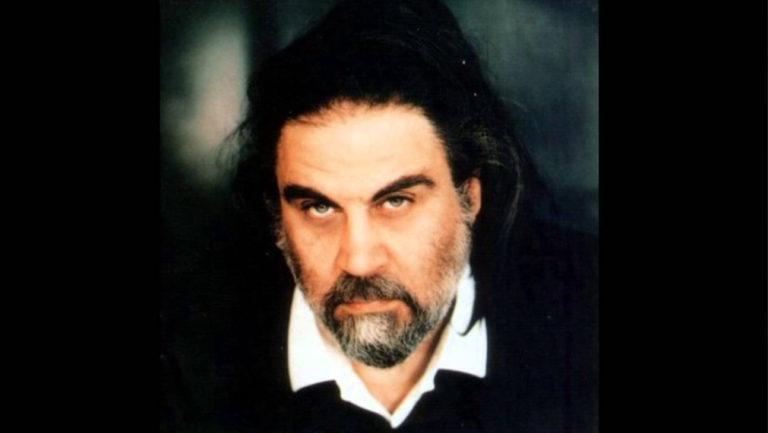
Acclaimed progressive musician, Vangelis, who won an Oscar for composing Chariots of Fire, died yesterday at the age of 79. The Greek electronic-music pioneer died in a French hospital while being treated for COVID-19, Variety is reporting.
The self-taught musician is known for having a long career in European pop music before he released solo albums in the 1970s that garnered the attention of film and television producers. He eventually rose into prominence in America the following decade, after a song from his 1975 record, Heaven and Hell, was used as the theme for Carl Sagan’s 1980 PBS series, Cosmos.
Vangelis went on to garner worldwide fame when he composed the score for Chariots of Fire. Producer David Puttnam decided to hire the musician, which was initially considered to be an unorthodox decision for the the 1981 period sports drama. But Puttnam felt Vangelis was the right choice to create the music for the movie after he heard the latter’s work for the French nature documentary, Opera Sauvage, and the studio album, China.
As he often did on his projects, Vangelis performed all of the instruments, including synthesizer, piano, drums and percussion, for Chariots of Fire‘s score. His memorable theme for the film helped the soundtrack reach number one on the Billboard charts. The composer was also honored with the Best Original Score trophy at the 64th Academy Awards ceremony in 1982.
The Oscar win helped launch Vangelis’ career as a Hollywood movie composer. Ridley Scott later hired him to score his classic sci-fi film, Blade Runner. The musician was also choosen to compose the Jack Lemmon-starring drama, Missing. He then signed on to compose the 1984remake of The Bounty, which starred Mel Gibson, and was distributed two years later.
Later in his career, the musician also composed the scores for several other historical dramas, included Scott’s 1492: Conquest of Paradise, which was released in 1992, and Oliver Stone’s Alexander, which was distributed in 2004. The soundtracks for both movies were celebrated for their mix of electronics and conventional orchestra and choirs.
Vangelis was born Evángelos Odysséas Papathanassíou on March 29, 1943, and raised in Athens. A self-taught pianist, he started his career by forming the rock band, the Forminx, in 1963, in which he played pop music and Beatles covers. He eventually began working on film scores and sessions a few years later.
After relocating to Paris in 1968, the composer formed the progressive-rock quartet Aphrodite’s Child with several other Greek expatriates, including Demis Roussos. The band found success in several European countries, particularly with the single Rain and Tear.
After that group dissolved, Vangelis focused on working on his solo work and composing movie scores. After then moving to London in 1975, he began collaborating with Yes singer Jon Anderson as the duo, Jon and Vangelis. Together, they released four albums between 1980 and 1991, one of which reached the British top 5.
Overall, the enormous commercial success of Chariots of Fire and the artistic success of Blade Runner helped to ensure a future for synth-based composition in film and television scores. By the mid-1980s, all-electronic scores were commonplace, including for such projects as Miami Vice and Witness, as composers began embracing the new form of music-making.
Besides composing scores for movie and television soundtracks, Vangelis also composed for the Greek theater, including for such productions as 1983’s Elektra and 1992’s Medea. He also composed for such London ballets as 1985’s Modern Prometheus and 1986’s Beauty and the Beast.
The artist, who shared little information about his personal life throughout his publicized career, also created music for nature films and sporting events throughout the 1980s, ’90s and 2000s. His choral symphony, Mythodea, was adopted by NASA as the theme for its 2001 Mars Odyssey mission. He also penned original music for the European Space Agency’s 2014 expedition to Comet 67P.
Several of Vangelis’ biggest highlights throughout the last few years of his life include composing music for the funeral of physicist Stephen Hawking in 2018. The composer’s last studio record, Juno to Jupiter, which was released last year, was inspired by NASA’s Juno space probe.

